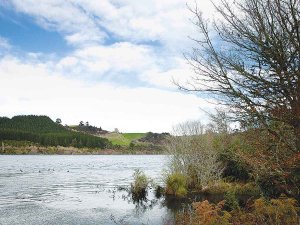Waikato dairy effluent breaches lead to $108,000 in fines
Two farmers and two farming companies were recently convicted and fined a total of $108,000 for environmental offending.
 The update of the Waikato Progress Indicators (WPI) – Tupuranga Waikato was presented to the Strategy and Policy Committee meeting on 6 September.
The update of the Waikato Progress Indicators (WPI) – Tupuranga Waikato was presented to the Strategy and Policy Committee meeting on 6 September.
An annual report on the Waikato region’s state of wellbeing notes some significant trends for the 2022 update.
The update of the Waikato Progress Indicators (WPI) – Tupuranga Waikato was presented to the Strategy and Policy Committee meeting on 6 September.
The WPI scorecard is a summary of 32 critical environmental, social, cultural, and economic indicator trends over the past 15 years.
It showed 12 improving trends, 11 worsening trends and nine trends with no significant change.
Significant positive trends were seen in road safety, increased building activity, improved air quality, higher average incomes and better educational attainment, while significant negative trends included poorer perceptions of community engagement, more waste to landfill, higher water use and lower frequency of physical activity.
The report also compared the Waikato region with the New Zealand average on specific key indicators, with the Waikato ahead in te reo Māori speakers, social connectedness, physical activity, community pride, community engagement, life expectancy and building activity, and below in road safety, crime, regional GDP, income and recycling.
Report author Dr Beat Huser says the results of the WPI programme, which annually monitors a range of publicly available data, provides a robust basis to discus regional challenges and identify priorities for action and partnership.
The results are shared with the Government, the Waikato Plan, the Waikato Wellbeing Project, and Momentum Waikato, among other stakeholders.
“It’s like taking the pulse of the region, and if you see there is something wrong then you can undertake further tests and analysis and try to do something about it,” Huser says.
Strategy and Policy Committee members noted that there was a lot of work to do within the region and the report did not show much to celebrate.
However, Huser told councillors that the devil lies in the detail, and the WPI only scratches the surface.
“As the name suggests, indicators are only indicating. They summarise complex data into a single number but often mask underlying issues. Additional data and more detailed analysis is required to provide actionable insights, for example at a local level or about a particular issue.”
Greenlea Premier Meats managing director Anthony (Tony) Egan says receiving the officer of the New Zealand Order of Merit (ONZM) honour has been humbling.
Waikato dairy farmer Neil Bateup, made a companion of the New Zealand Order of Merit (CNZM) in the New Year 2026 Honours list, says he’s grateful for the award.
Another Australian state has given the green light to virtual fencing, opening another market for Kiwi company Halter.
Farmer interest continues to grow as a Massey University research project to determine the benefits or otherwise of the self-shedding Wiltshire sheep is underway. The project is five years in and has two more years to go. It was done mainly in the light of low wool prices and the cost of shearing. Peter Burke recently went along to the annual field day held Massey's Riverside farm in the Wairarapa.
Applications are now open for the 2026 NZI Rural Women Business Awards, set to be held at Parliament on 23 July.
Ravensdown has announced a collaboration with Kiwi icon, Footrot Flats in an effort to bring humour, heart, and connection to the forefront of the farming sector.

OPINION: The release of the Natural Environment Bill and Planning Bill to replace the Resource Management Act is a red-letter day…
OPINION: Federated Farmers has launched a new campaign, swapping ‘The Twelve Days of Christmas’ for ‘The Twelve Pests of Christmas’ to…